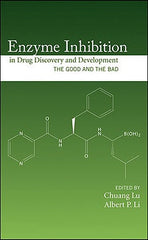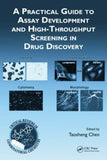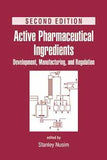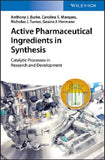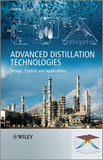Enzyme Inhibition in Drug Discovery and Development: The Good and the Bad
Enzyme Inhibition
in Drug Discovery and Development: The Good and the Bad
edited by Chuang Lu
Enzyme Inhibition in Drug Discovery and Development examines the scientific concepts and experimental approaches related to enzyme inhibition as applied in drug discovery and drug development.
Topics covered include:
The drug discovery process, including drug discovery strategy, medicinal chemistry, analytical chemistry, drug metabolism, pharmacokinetics, and safety biomarker assessment
The manipulations of drug metabolizing enzymes and transporters as well as the negative consequences, such as drug–drug interactions
The inhibition of several major drug target pathways, such as the GPCR pathway, the NFkB pathway, and the ion channel pathway
Contents
Part 1: Drug Discovery Approaches and Technologies
The Drug Discovery Process
Medicinal Chemistry of the Optimization of Enzyme Inhibitors
Bioanalytical Technologies in Drug Discovery
Safety Biomarkers in Drug Development: Emerging Trends and Implications
The Role of Drug Metabolism in Drug Discovery
Applied Pharmacokinetics in Drug Discovery and Development
Part II: Inhibition of the Drug Metabolizing Enzymes-The undesirable inhibition
Enzyme Inhibition and Inactivation: Cytochrome P450 Enzymes
Cytochrome P450 Induction (
Inhibition of Drug-Metabolizing Enzymes in Gastrointestinal Tract and Its Influence on the Drug–Drug Interaction Prediction
Enzyme Inhibition in Various In Vitro Systems .
Cytochrome P450 Degradation and Its Clinical Relevance
Complexities of Working with UDP-Glucuronosyltransferases (UGTs): Focus on Enzyme Inhibition
Evaluation of Inhibitors of Drug Metabolism in Human Hepatocytes
Grapefruit Juice and Its Constituents as New Esterase Inhibitors
Transporter–Xenobiotic Interactions: An Important Aspect of Drug Development Studies
Polymorphisms of Drug Transporters and Their Clinical Implications
Clinical Drug Interactions Due to Metabolic Inhibition: Prediction, Assessment, and Interpretation
Predicting Interindividual Variability of Metabolic Drug–Drug Interactions: Identifying the Causes and Accounting for Them Using Systems Approach
PART III:Inhibition of the Drug Target Enzymes-The desirable inhibition
NF-κB: Mechanism, Tumor Biology, and Inhibitors
G-Protein-Coupled Receptors as Drug Targets
Pharmacological Modulation of Ion Channels for the Treatment of Chronic Pain
Targeting the mTOR Pathway for Tumor Therapeutics
HIV-1 Protease Inhibitors as Antiretroviral Agents

